Case
Case of Graves’ Disease
- This file contains 4 case scenarios with their answers
Scenario
A 41-year old female presented with a breast lump. onset? painful or not? bilatual or unilatu?
Q1: Mention 3 relevant questions you will ask regarding history of present illness. Answer: Change in lump during menstrual cycle Family history of breast cancer Progression of the lump, discharge from nipple
Q2: Mention 2 initially required diagnostic radiological investigations in this case?
Answer: Mammogram U/S
Q3: How to confirm the definitive diagnosis in this patient? Answer:
FNA Core Biopsy
Q4: Mention the specific management for a fibroadenoma breast lump Answer: Reassure if less than 4cm If large excision
Case 2:
Patient had signs and symptoms of hypothyroidism blah blah blah. It is obvious, doctors.
Q1) Write your most likely endocrine diagnosis? Hypothyroidism
Q2) Write 5 signs or symptoms of hypothyroidism? Goiter, bradycardia, lethargic status, pretibial myxedema, dry skin with brittle nails
Q3) Name 2 LABORATORY investigations you will perform? Thyroid function tests (tsh, t3, t4) and serology tests (auto antibodies findings)
Q4) Name 2 possible causes of hypothyroidism? Hashimoto thyroidits and total thyroidectomy
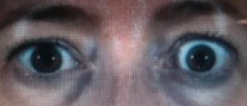 1- What is your diagnosis?
Lid retraction.
1- What is your diagnosis?
Lid retraction.
2- Give a disease that patient will have this finding? Graves’ disease
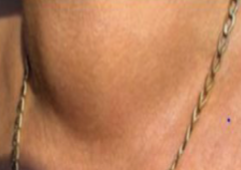 Stepwise thyroid palpation
Stepwise thyroid palpation
-
Permission, privacy, precautions
-
Vital signs
-
Appropriate exposure and position
-
Tracheal position from front
-
Then move to back palpate the lobes and ask the patient to swallow and protrude the tongue and comment on swelling
-
Then palpate all lymph nodes groups(submental, submandibular, pre and post auricular, anterior and posterior cervical, supra and infra clavicular, occipital)
-
Thank the patient
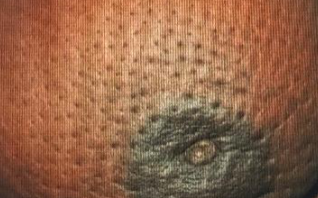
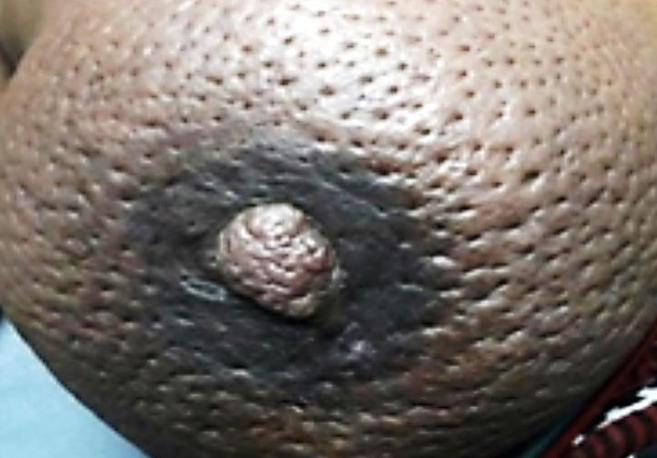
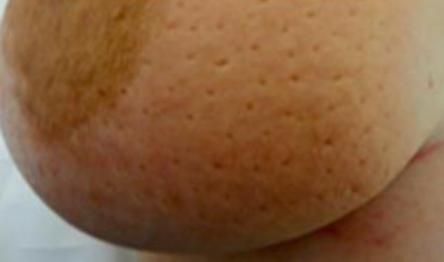 Inspection of the left breast of a 55 year-female has shown
Inspection of the left breast of a 55 year-female has shown
Q1: What is the abnormality? peau d’orange and nipple retraction, change in skin color
Q2: What is the most likely cause and how to confirm? Breast carcinoma, core needle biopsy
Q3: how to clinically examine Inspection & Palpation- Patient lying on 45 degree position. Take permission, check privacy, and expose both breasts. Start palpation by palmar surface of hand in a circular manner from inside to outside to cover the all 4 quadrants including the nipple. Palpate the axilla
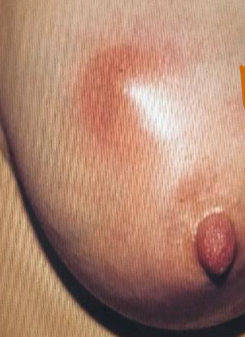
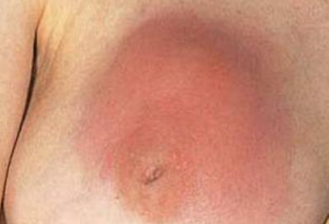
Abnormality breast abcess in upper outer quadrant
Treatment Incision and drainage + antibiotics
Common microorganism Staphylococcus aureus